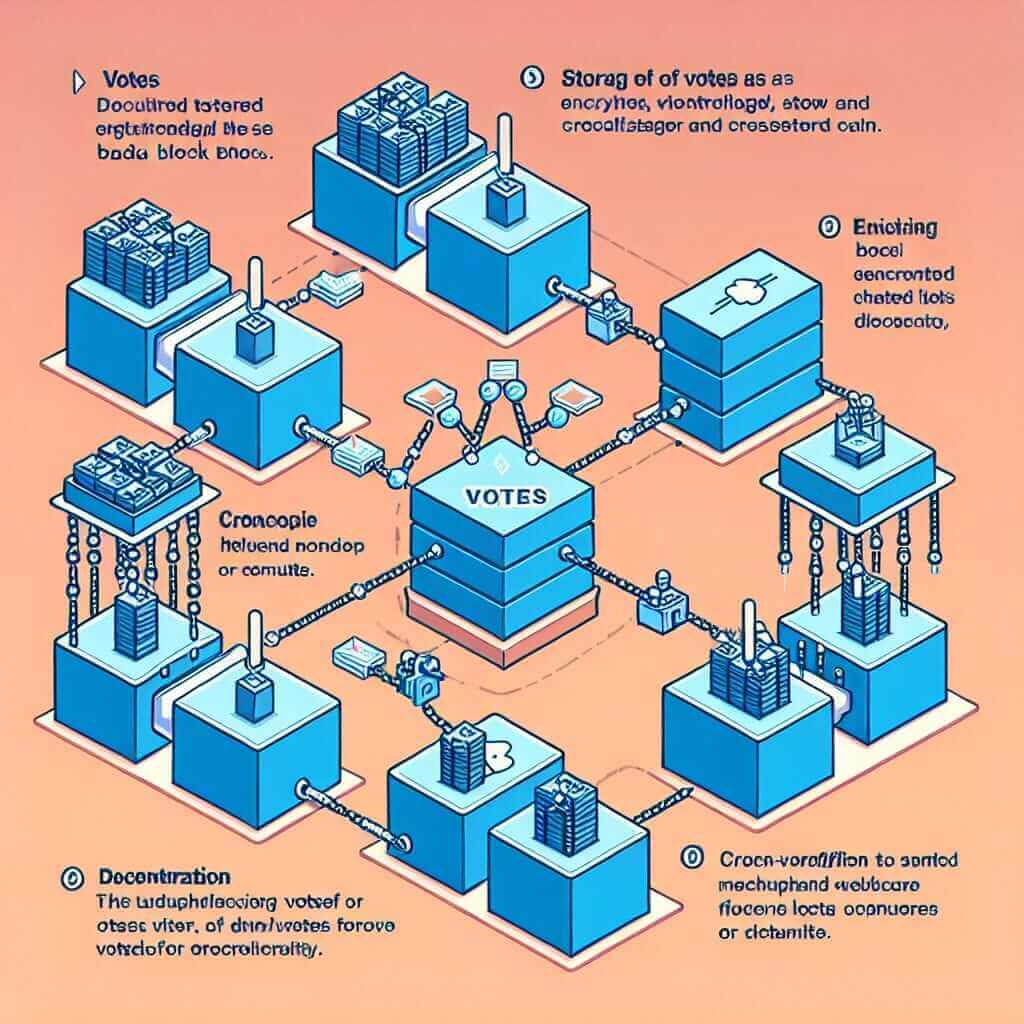The IELTS Reading test is a crucial part of the examination, testing your ability to understand and interpret written English. One of the trending topics that may appear in the Reading section is the application of blockchain technology in securing voting systems. Given the increasing concern over electoral integrity and technological advancements, this topic has become quite relevant and is predicted to continue surfacing in various contexts. In this article, we will explore this fascinating subject through a custom-designed IELTS Reading practice test to help you prepare effectively.
Main Content
Reading Passage
Easy Text: Blockchain in Securing Voting Systems
The concept of using blockchain technology to secure voting systems has gained significant attention in recent years. Blockchain, a distributed ledger technology, offers a transparent and tamper-proof method for recording transactions. This feature makes it an appealing solution for ensuring the integrity of voting processes.
In traditional voting systems, there are multiple points where the process can be compromised, such as voter fraud, manipulation of vote counts, and cyberattacks. Blockchain technology addresses these issues by providing a decentralized and immutable record of votes, which can be independently verified by any participant in the network.
Estonia is one of the pioneering countries in adopting blockchain technology for its voting system. Since implementing this technology, the country has seen a substantial increase in voter confidence and participation. Other countries are also exploring pilot programs to integrate blockchain into their electoral processes.
The advantages of blockchain in voting extend beyond security. It also offers the potential for increased accessibility, allowing citizens to vote from remote locations while maintaining the same level of security as traditional polling stations. However, there are challenges to widespread adoption, such as technological literacy and the initial cost of implementation.
In conclusion, blockchain technology presents a promising solution for securing voting systems, but it will require careful planning and robust infrastructure to be effectively implemented on a global scale.

Questions
Based on the passage above, answer the following questions:
Multiple Choice
-
What is one of the main benefits of using blockchain technology in voting systems?
a. Increased voter anonymity
b. Increased voter turnout
c. Decentralized and tamper-proof record of votes
d. Reduced cost of elections -
Which country is mentioned as a pioneer in adopting blockchain technology for voting?
a. United States
b. Estonia
c. Germany
d. Japan
True/False/Not Given
-
Blockchain technology was developed specifically for voting systems.
True / False / Not Given -
There has been an increase in voter confidence in Estonia since adopting blockchain technology.
True / False / Not Given
Matching Headings
-
Match the following headings to the appropriate paragraphs (1-4):
a. Challenges to Implementation
b. The Core Principle of Blockchain
c. Advantages Beyond Security
d. A Case Study in Estonia
Sentence Completion
- Blockchain offers a transparent and __ method for recording transactions.
Answers and Explanations
Multiple Choice Answers
- c. Decentralized and tamper-proof record of votes
- b. Estonia
True/False/Not Given Answers
- False – The passage states that blockchain is a distributed ledger technology used for various applications.
- True – The passage mentions that voter confidence in Estonia has increased since implementing blockchain technology.
Matching Headings Answers
- (1) b. The Core Principle of Blockchain
(2) d. A Case Study in Estonia
(3) c. Advantages Beyond Security
(4) a. Challenges to Implementation
Sentence Completion Answer
- tamper-proof
Common Mistakes
- Misinterpreting information: It’s crucial to read the passage carefully and understand each detail properly.
- Overlooking specific words: Pay attention to keywords and their context to ensure you’re choosing the correct answer.
- Time management: Allocate your time efficiently to answer all questions within the given timeframe.
Vocabulary
- Distributed ledger (noun): /dɪˌstrɪb.juː.tɪd ˈlɛdʒ.ɚ/ – A ledger that is shared and synchronized across multiple sites.
- Immutable (adjective): /ɪˈmjuː.tə.bəl/ – Unchanging over time or unable to be changed.
- Cyberattacks (noun): /ˈsaɪ.bər.əˌtæks/ – Attempts by hackers to damage or destroy a computer network or system.
Grammar Focus
- Relative Clauses: Used to add essential or non-essential information about a noun. Example: “Blockchain technology, which offers a tamper-proof record, is being adopted globally.”
- Passive Voice: Often used in formal writing to focus on the action rather than the subject. Example: “Blockchain technology has been implemented by several countries.”
Advice
For a high score in IELTS Reading, practice regularly with various types of texts and question formats. Hone your skimming and scanning skills to locate information quickly. Additionally, expand your vocabulary and understanding of grammatical structures to enhance comprehension. Always review your answers to understand and learn from any mistakes.
By staying updated with current trends and topics like blockchain technology in voting systems, you will be better prepared for the IELTS Reading test. Happy studying!